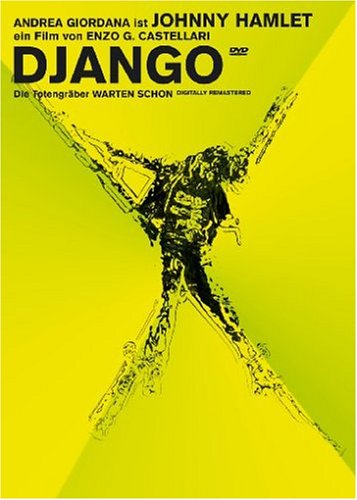Note: I use the term "Spaghetti Shakespeare" advisedly, knowing that it might seem flippant or insulting; however, in Johnny Hamlet, we have a subset of the recognized genre "Spaghetti Western," so the term seems viable.
A student and I have received a Faculty / Student Collaboration grant from University of Northwestern—St. Paul to study film versions of Shakespeare made in Italy, and I'm thrilled to be able to explore a section of Shakespeare and Film that has been relatively closed to me because I do not speak Italian and many of the films lack English-language subtitles. We intend to study five or six films and to collaborate on a presentation and an essay. In the meantime, we will be collaborating on and individually composing blog posts on the subject. You can therefore expect some guest posts from Ceciley Pund, the author of the blog What Consolation, as we discover intriguing and significant elements of these films.
One film I've been able to watch for the collaboration is Quella Sporca Storia nel West, commonly known as Johnny Hamlet. Particularly astute readers may be able to hypothesize that the film recasts the plot of Hamlet in the American Wild West, but that guess (which is, in essence, absolutely correct) will not necessarily prepare them for the way the film addresses those themes.
Much more will follow about this film in the weeks to come, but I want you all to jump right in with us in our exploration of this film. To that end, I'm providing the first five minutes of the film in the clip below. You'll see a ghost sequence, a glimpse of an Ophelia or two (Ophelia is bifurcated into a performer / possible prostitute and the sheriff's daughter), the traveling players, the deaths of Rosencrantz and Guildenstern, and an extremely intriguing use of "To be or not to be."
All right—I was probably joking about Rosencrantz and Guildenstern, but all the rest is intriguingly built in to the opening sequence. Knowing that the film is a derivative version of Hamlet, the viewer is startled by having what appears to be a voiceover of fragments of an Italian translation of "To be or not to be" delivered by a man in Elizabethan costume. Knowing that the film is Italian, we may not be surprised to see a figure in contemporary clown costume surreally turning backflips on a beach behind a horse—but it doesn't take long for these unexpected elements to resolve themselves into what looks like a more straightforward western . . . although they won't stay there for long, either.
Please stand by for further glimpses at this fascinating film and into our collaborative project.
Links: The Film at IMDB.



No comments:
Post a Comment